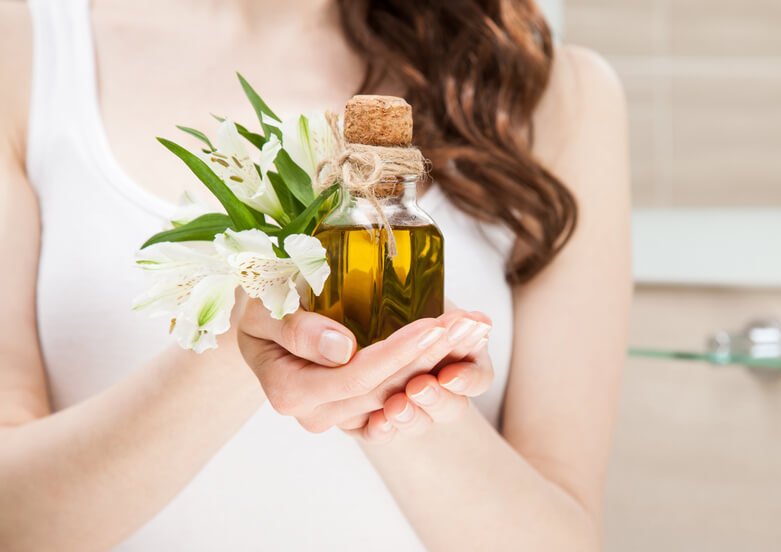Hair
Top 16 Botanicals for Healthy Hair
Botanicals have been a huge buzzword lately, basically referring to compounds that have been derived from plants. In addition to boosting your health when consumed orally, and improving your complexion when used topically, botanicals can also work wonders when it comes to your hair.
Horsetail
Many people have never heard of horsetail, but this grassy-smelling herb is commonly grown in North America, and has been used for thousands of years in a number of different health concoctions.
One of its key benefits is the fact that the stem of this plant contains high levels of silica.
Silica is essential when it comes to the formation of protein in the hair, not only encouraging new hair growth but also repairing any damaged hair tissue along the shaft. This also strengthens the hair, while protecting it from pollution and UV rays.
Hair care brands caught on to the power of silica a long time ago, and you will find it included in a wide range of different hair products. However, this tends to be silicon rather than silica.
Wondering what the difference is?
Silicon only gives your hair an artificial shine, and actually causes quite a bit of damage if it comes into contact with heat.
Rosemary
Rosemary is one of the top botanicals out there when it comes to the health of your hair, and has been used for hair care purposes for thousands of years.
What exactly does rosemary do for the hair?
Well, to begin with, this aromatic botanical contains so many different antioxidants, one of which is a chemical known as carnasol. This rich antioxidant helps to fight the free radicals that cause your hair to thin and gray.
Rosemary also contains properties that invigorate the hair, adding shine while reducing any dandruff, and treating dry scalp issues.
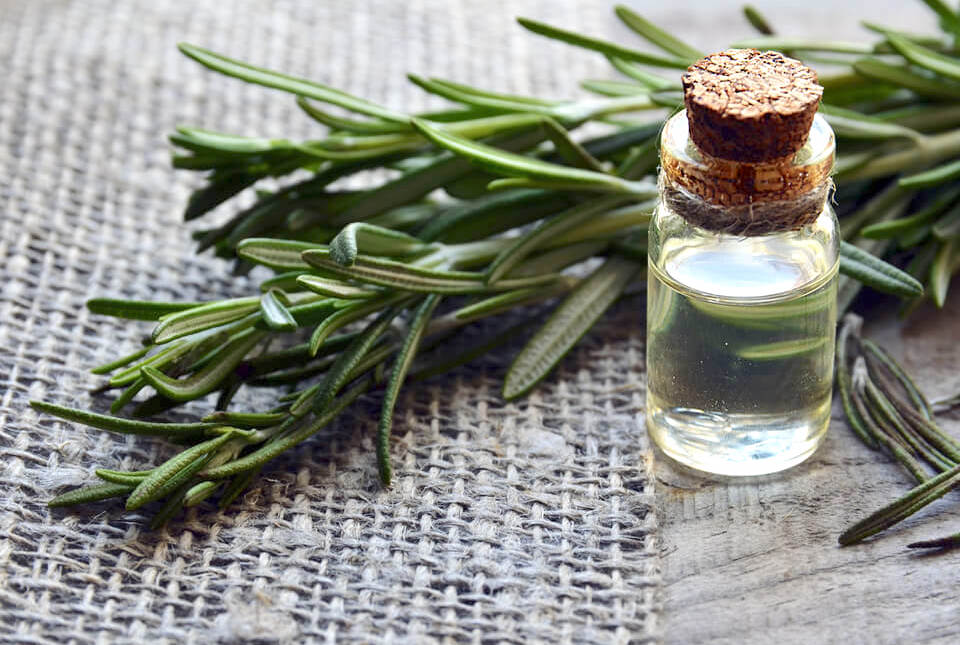
However, one of the main benefits that rosemary has is with hair growth…
Research has shown that, when combined with other botanicals, rosemary has the potential to increase hair growth by over 20%, while boosting microcirculation, which promotes healing.
While there are many hair care products out there that are formulated with rosemary, try using this botanical in its essential oil form for quicker results.
Ginseng
A popular Chinese herb, ginseng is known for its stimulating abilities, applying this to everything from the brain to the nervous system to the scalp.
When it comes to the hair, there have been a couple of studies carried out on the effects of ginseng, and both of them produced positive results.
Here are a few of the effects that researchers found ginseng to have:
- An increase in hair thickness
- An increase in hair density
- A reduction in hair loss
- A reduction in dandruff
Thanks to these scientifically proven properties, ginseng is a common ingredient in hair care products, but you can also take ginseng supplements if you would like to boost its effects.
Ashwagandha
One of the most powerful herbs in Ayurvedic healing, ashwagandha is commonly referred to as an Indian ginseng, because they share similar properties.
The plant itself is a shrub, with yellow flowers and red fruits, and it tends to be the fruit and the roots that contain the most potent compounds.
One of these compounds is tyrosine, which is an amino acid.
What does this do?
Firstly, it is able to prevent the loss of melanin, meaning that it can prevent premature graying.
It also contains antioxidants that do everything from strengthening the hair to treating scalp psoriasis and dandruff.
Fenugreek
A member of the pea family, fenugreek is an aromatic spice that works wonders on hair.
How?
It actually makes a great alternative to store-bought conditioners, because fenugreek seeds have such a high mucilage content. This basically coats each strand of hair in the same way that a traditional conditioner would, nourishing your hair while giving it an added layer of protection at the same time.
Just like a conditioner, fenugreek also helps with de-tangling, while softening your hair and giving it a natural bounce.
Lavender
You have likely already heard of lavender, and maybe also use products that contain this beautifully scented botanical.
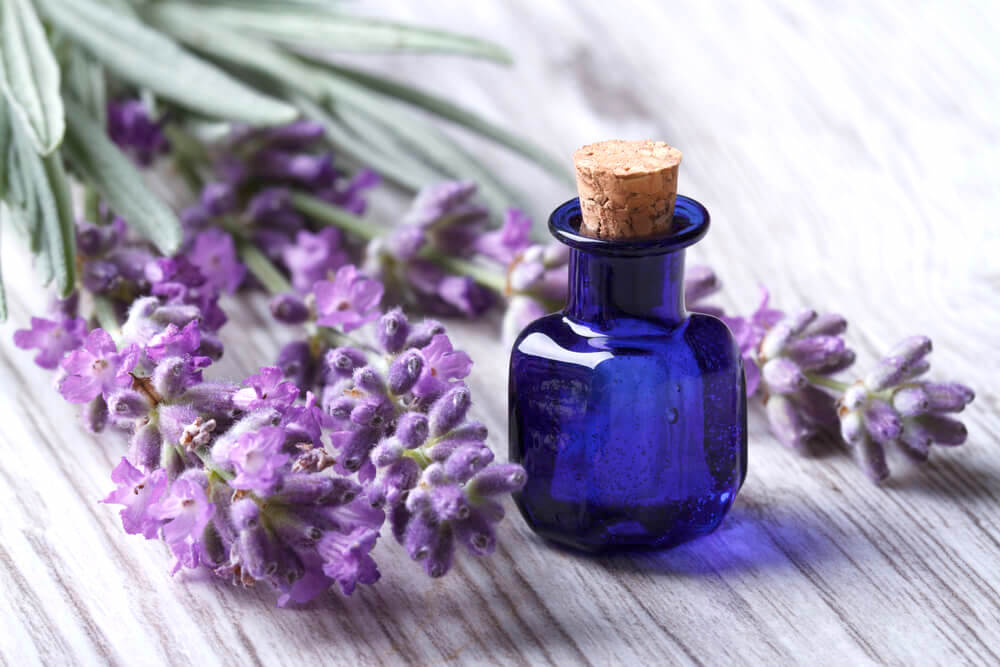
However, it is not just its scent that makes lavender such a top class ingredient for your hair…
Lavender is a great herb to use for those who suffer from alopecia.
Not sure what this is?
It is a condition that causes the abnormal loss of hair. It can be triggered by a variety of different factors, from genetics to a poor diet to hormones.
Of course, if you suffer from alopecia, it is important to spend some time determining its root cause. But, in the meantime, lavender makes a great aid.
How?
By encouraging your hair follicles to produce new hairs more quickly, while also ensuring that the new hairs produced are thick and strong.
Another common issue with hair loss is that hair follicles often reject hair, thinking that they are foreign objects. Lavender has the ability to prevent this from happening, making it a great remedy for baldness.
Do you already have a bottle of lavender essential oil at home?
Try mixing this with a carrier oil, such as jojoba oil, and then applying this to any split ends, as this will make them less visible and they will look so much healthier.
Nettle
The majority of gardeners out there would consider nettles to be nothing more than an annoying weed, but this plant has some incredible properties.
In addition to boosting your health in a number of different ways when consumed, nettles also make a great ingredient for hair care.
Why?
Because they have the ability to stimulate the scalp, and therefore boost blood circulation, keeping your hair looking and feeling so healthy.
Nettles are also able to inhibit the enzyme that causes hair loss, making this a great remedy for that condition.
How should you use nettles?
Either purchase them in oil form, or make an oil yourself, and then apply this directly to your scalp. You could also give nettle supplements a try, as these will help to nourish your hair from within.
Aloe Vera
Aloe vera is an ingredient that is commonly used as a carrier for other botanicals.
Why?
Because its structure is extremely similar to that of keratin, which is the main protein that makes up your hair.
Aloe vera also contains salicylic acid.
This is an ingredient commonly used in skin care, because it is a gentle but effective exfoliant. When it comes to your hair, these exfoliating enzymes dissolve any dead skin cells, as well as excess oil, both of which can clog up your hair follicles.
Aloe vera is also extremely hydrating and nourishing, meaning it will give your hair a general boost.
Sage
Sage is a herb that can be found in kitchens all over the world, as it really adds a distinct flavor to dishes.
For thousands of years, cultures all over the world have believed sage to have curative properties, and studies are now able to back this up.
In addition to being an antiseptic, antibiotic and anti-allergy ingredient, sage also contains the following nutrients in high amounts:
- Magnesium
- Zinc
- Potassium
- Vitamin C
- B vitamins
Your hair needs all of these in order to be strong, making sage a great ingredient to use.
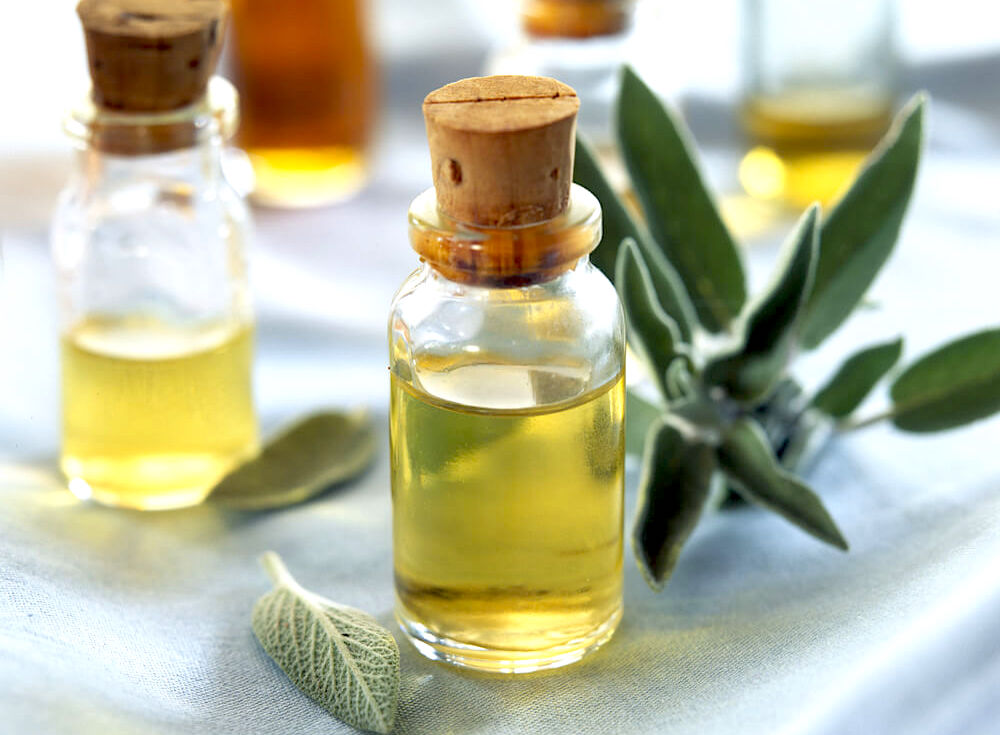
Wondering how to use it?
There are a few different ways, but the easiest is to create a tincture with dried leaves, and then massage this into your scalp, just like a normal hair treatment.
Marshmallow Root
While marshmallows today consist primarily of sugar, they were traditionally made from a plant that was native to Europe, North Africa and Western Asia.
It is the root of the plant that has long since been revered for its medicinal properties, and has been used as a remedy for coughs and colds for so many years.
What makes it so potent?
Well, just like with fenugreek, marshmallow root contains a high amount of mucilage, which is a slippery substance that works in the same way as a traditional conditioner.
Marshmallow root also contains soothing and cooling properties, making it a great treatment for itchy scalps.
In general, the natural proteins within marshmallow root also boost the health of your hair, nourishing it and giving it an intense shine.
Flaxseed
Flaxseed is an ingredient that everybody should be including in their diets, as they are packed with omega-3 fatty acids.
These omega-3 fatty acids are essential for healthy hair, as they increase elasticity, which therefore reduces any breakages.
Flaxseeds are also filled with all of the vitamins and minerals that your hair needs in order to thrive.
Burdock
The burdock plant is one that is native to Europe, but has been naturalized in North America. This plant belongs to the thistle family, and is extremely rich in everything from essential fatty acids to amino acids to minerals.
How can burdock help your hair?
It significantly improves blood circulation on the scalp, which means that your hair follicles have more access to the nutrients that they need, resulting in faster hair growth.
When used as an oil, burdock can also help to soothe the scalp, relieving any irritations or other scalp conditions.
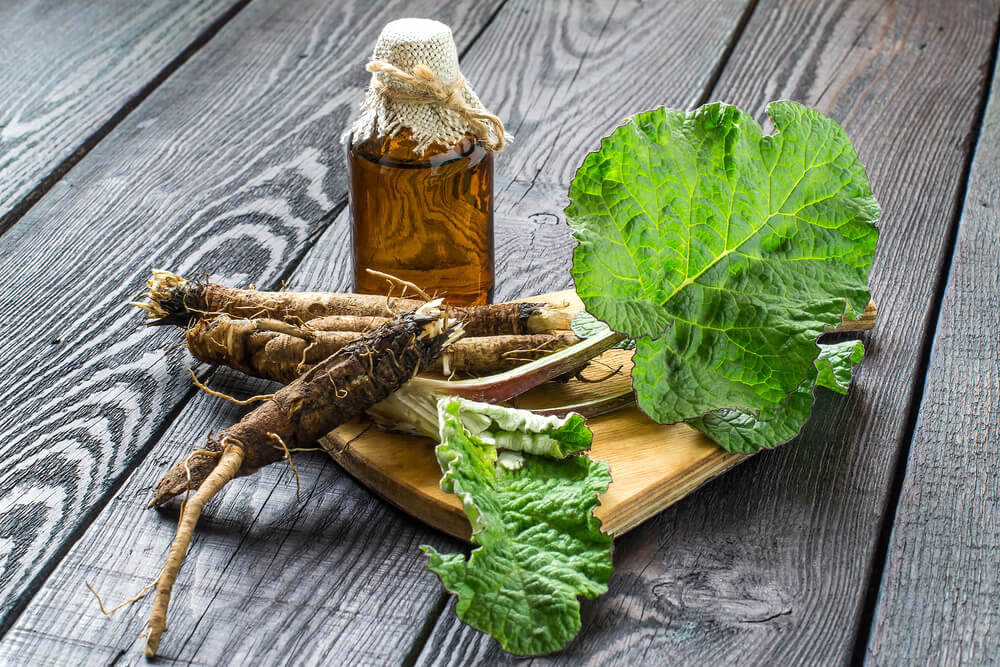
There are so many other botanicals out there that could really benefit your hair, so if you have a particular condition you are hoping to treat, it would definitely be worth delving deeper into the world of botanicals.
Don’t forget…
In addition to using these botanicals topically, you can also take many of them as oral supplements, thereby boosting the effects that the topical botanicals will have.
Lemon and Lime
Both of these citrus fruits are famous for their vitamin C content, and were used by the ancient Egyptians as a way to cleanse their hair.
While these fruits will not be able to replace a traditional shampoo, they make great treatments for those who have oily hair. Both lemons and limes contain astringent properties, meaning that they are able to clear away any excess oil.
Lemons and limes also have antiseptic and anti-fungal properties, meaning that they can help with scalp problems and dandruff.
Oatstraw
You likely already know that oats are great for your skin and hair, but do you know what oatstraw is?
Oatstraw refers to the dried tops from oat crops, and they contain all of the same compounds that the oats themselves do.
Just like oats, oatstraw has incredible anti-inflammatory properties, and is also an extremely gentle ingredient. This makes oatstraw perfect for anyone that has an itchy scalp or dandruff.
Amla
Also known as the Indian gooseberry, amla contains quite a few antioxidants, including vitamin C.
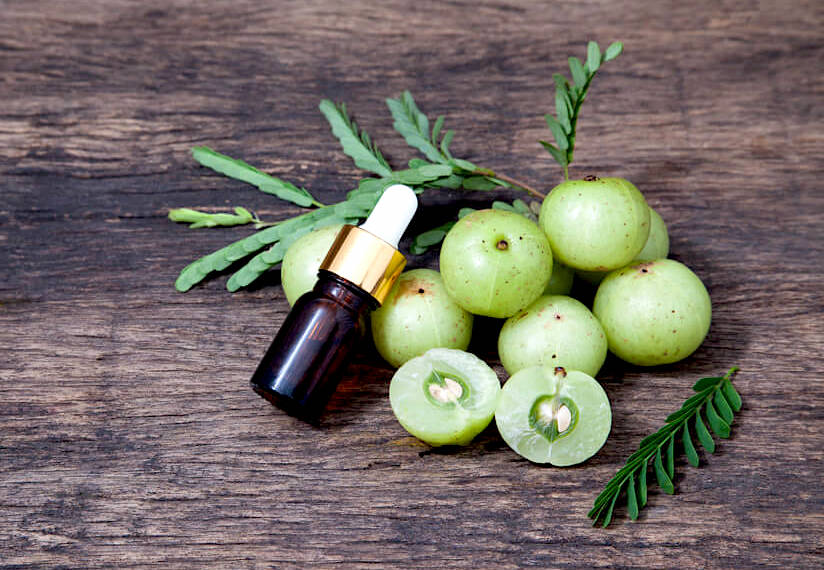
Why does vitamin C matter?
Because this vitamin is essential for the production of collagen, which then helps to boost hair growth and strength.
Got a few gray strands?
Amla can help with this too.
If you cannot find any hair care products that contain this botanical, your next option is to purchase it in a powdered form. Mix this with some water to create a paste, and then apply this to your hair, just like a hair mask, for about half an hour, before rinsing it off.
Saw Palmetto
Saw palmetto is a plant that resembles a palm tree, but is much more low growing. The fruits that this tree produces are packed with phytosterols and fatty acids, meaning that they can bring the body a wide range of different benefits.
Saw palmetto is actually one of the most popular herbal remedies out there when it comes to hair loss.
Why?
Because it has the ability to stop testosterone from being converted into dihydrotestosterone.
Wondering why this matters?
Because dihydrotestosterone has been linked to hair loss, meaning that the inhibition of this not only prevents hair loss, but also encourages healthy and strong growth.
While there are medications out there that can also prevent the production of dihydrotestosterone, saw palmetto does this without any side effects, which is why this is often the botanical of choice for hair loss.

